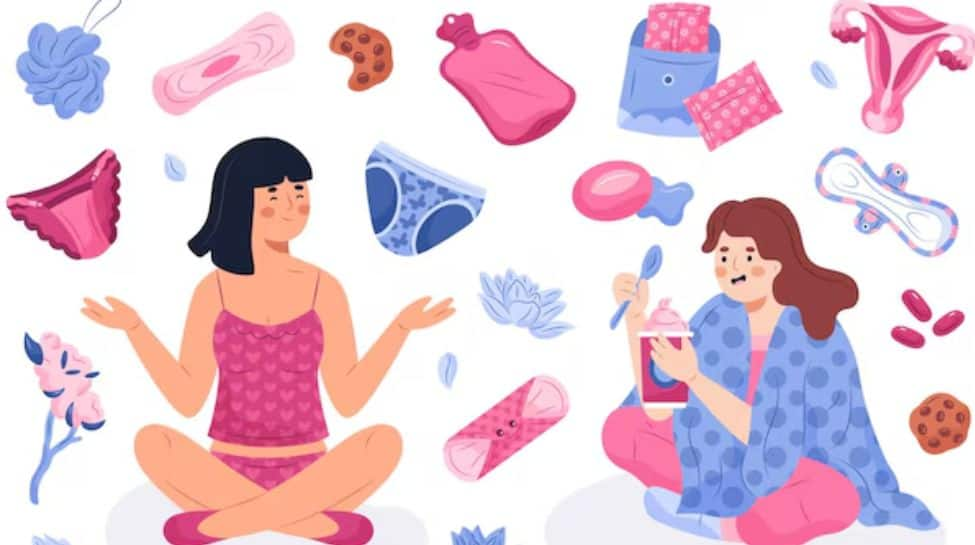Maintaining good menstrual hygiene is crucial for overall health and well-being. Unfortunately, poor menstrual hygiene remains a significant issue, especially in low-resource settings where access to sanitary products and clean water is limited. While the immediate risks of poor menstrual hygiene, such as infections, are well-documented, several lesser-known health risks also deserve attention.
Here we will explore 6 lesser-known health risks associated with poor menstrual hygiene as shared by Dr Swapna S Khanzode, Internal Medicine, American Oncology Institute, Nagpur:
Pelvic Inflammatory Disease (PID)
Pelvic Inflammatory Disease (PID) is a serious infection of the female reproductive organs. It often results from bacteria, such as those causing sexually transmitted infections (STIs), traveling from the vagina to the uterus, fallopian tubes, or ovaries. Poor menstrual hygiene can exacerbate the risk of PID by facilitating the growth and spread of harmful bacteria.
When women use unsanitary materials like cloths, rags, or even natural substances like sand or ash, they increase the likelihood of introducing pathogens into their reproductive tract. These pathogens can ascend through the cervix and cause PID, leading to symptoms like pelvic pain, fever, and abnormal discharge. Untreated PID can result in chronic pelvic pain, ectopic pregnancies, and infertility.
Increased Risk of Human Papillomavirus (HPV) Infection
Human Papillomavirus (HPV) is a common sexually transmitted infection that can lead to cervical cancer. Poor menstrual hygiene practices can increase susceptibility to HPV infection. Using unclean menstrual products or not changing sanitary products frequently enough can cause micro-abrasions in the vaginal mucosa. These small tears provide an entry point for the HPV virus, facilitating infection.
Moreover, the prolonged use of damp and soiled sanitary products creates an environment conducive to the growth of harmful bacteria and viruses, increasing the risk of infections that can lead to HPV persistence and progression to cervical cancer.
Toxic Shock Syndrome (TSS)
Toxic Shock Syndrome (TSS) is a rare but life-threatening condition caused by toxins produced by certain types of bacteria, particularly Staphylococcus aureus and Streptococcus pyogenes. TSS has been linked to the use of high-absorbency tampons, especially when left in place for too long. However, poor menstrual hygiene practices can also contribute to TSS risk.
Using highly absorbent tampons or menstrual cups without following proper hygiene practices, such as regular washing and timely changing, can create an environment for bacterial growth. Symptoms of TSS include high fever, low blood pressure, rash, and multi-organ failure. Prompt medical treatment is essential for recovery.
Bacterial Vaginosis (BV)
Bacterial Vaginosis (BV) is an imbalance of the natural bacteria in the vagina, leading to symptoms like unusual discharge, odor, itching, and irritation. Poor menstrual hygiene can disrupt the vaginal microbiome, making women more susceptible to BV.
Using non-sterile menstrual products, not changing products frequently, and inadequate washing can alter the pH balance of the vagina. This imbalance allows harmful bacteria to proliferate, increasing the risk of BV. Left untreated, BV can lead to more severe infections and complications, particularly in pregnant women.
Urinary Tract Infections (UTIs)
Urinary Tract Infections (UTIs) occur when bacteria enter the urinary tract and multiply, causing symptoms such as painful urination, frequent urge to urinate, and lower abdominal pain. Poor menstrual hygiene is a significant risk factor for UTIs.
Using unsanitary materials, improper wiping techniques, and prolonged use of soiled sanitary products can introduce bacteria like Escherichia coli (E. coli) into the urethra. This risk is particularly high during menstruation when the use of menstrual products can facilitate bacterial transfer. UTIs, if recurrent or left untreated, can lead to kidney infections and other serious complications.
Reproductive Tract Infections (RTIs)
Reproductive Tract Infections (RTIs) encompass a range of infections affecting the reproductive organs. Poor menstrual hygiene can lead to various RTIs, including endometritis (infection of the uterine lining) and salpingitis (infection of the fallopian tubes).
The use of unclean menstrual products, infrequent changing of sanitary items, and inadequate genital hygiene can introduce pathogens into the reproductive tract. These infections can cause chronic pelvic pain, menstrual irregularities, and even infertility. Early detection and treatment are crucial to prevent long-term health consequences.
Poor menstrual hygiene is not just a matter of discomfort or inconvenience; it poses serious health risks that can have lasting effects. While the more immediate risks such as local infections are well-known, the lesser-known risks such as Pelvic Inflammatory Disease, increased susceptibility to HPV, Toxic Shock Syndrome, Bacterial Vaginosis, Urinary Tract Infections, and various Reproductive Tract Infections highlight the need for comprehensive menstrual health education and resources.
Ensuring access to clean and safe menstrual products, proper sanitation facilities, and menstrual health education can significantly mitigate these risks. By addressing the root causes and promoting better menstrual hygiene practices, we can improve the health and well-being of women and girls globally.
















